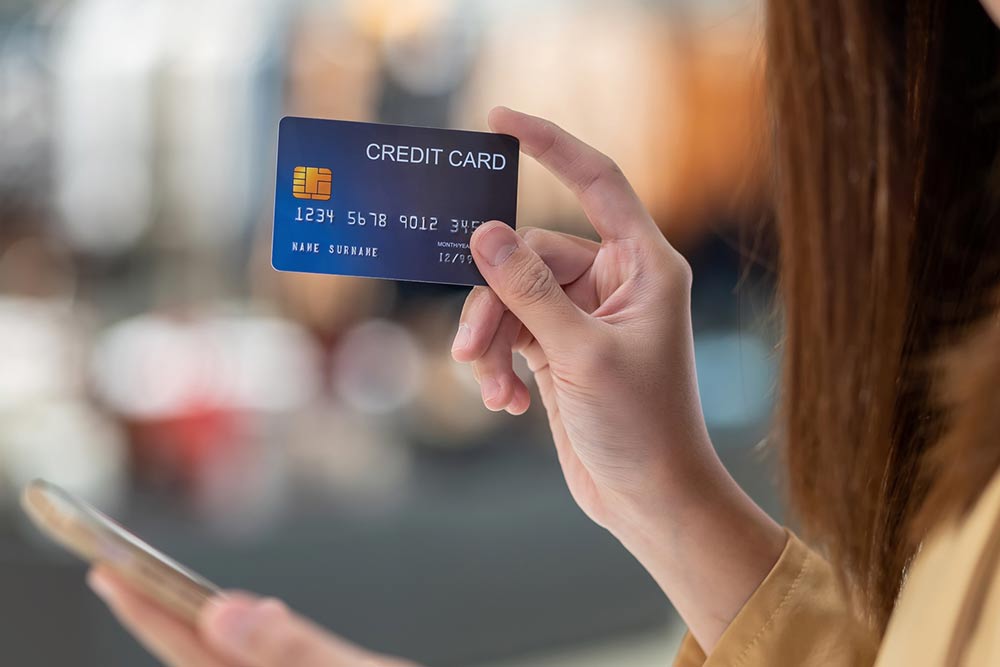10 mistakes to avoid when using a credit card

With credit cards, one can flexibly pay later for any transaction, making it a popular choice. Using a credit card means one’s purchasing power does not depend on how much money they have in their bank account. Also, many credit card companies offer reward points for specific purchases, enticing customers to use them frequently. But one needs to avoid some mistakes like the following while using a credit card to maximize its benefits:
Delaying bill payment
Paying credit card bills late repeatedly can affect one’s credit score. If one has a low credit score, there is a risk of one’s loans getting rejected. Employers also tend to reject those with poor credit scores. So, tracking one’s credit cycle closely and paying bills by the deadline is essential to maintaining a good credit report.
Applying for multiple cards simultaneously
Using multiple credit cards to split an expense may seem like a good idea, as all the cards will have more available credit. However, applying for multiple credit cards triggers multiple inquiries, affecting credit scores. Having many cards can also be a hassle because each card’s billing cycle may differ, and it may be challenging to keep track of the last date of bill payment for each.
Closing a credit card
Closing a credit card affects a person’s credit history, especially if an old card is closed. For example, if one owns a credit card issued three years ago and another with a credit history of two years, one’s total credit history comes to five years. But if one closes the card with a three-year credit history, the total credit history falls to only two years. So, closing an old credit card may not be one’s best decision.
Not having enough available credit
Sometimes, one may have to use the entire credit limit for certain significant expenditures. But this should not become a habit because it can increase one’s credit utilization ratio and ultimately hamper credit score. Hence, one should try not to use more than 30% of one’s available credit every month.
Taking cash advances
A cash advance is when one withdraws a certain amount using the line of credit linked to one’s credit card. Cash advances may be quick fixes for unplanned expenses, but one may end up paying additional fees and higher interest rates because of cash advances. Cash advance fees are usually 5% of the total amount withdrawn, and the APR may be up to 20%. So, using one’s credit card directly is always the better option.
Not setting a budget
It may be tempting to overspend with a credit card because one does not have to pay the money immediately. But when the bill has to be paid, it can cause a hole in one’s pocket. Setting a budget limit while using a credit card helps limit credit card spending.
Frequently paying bills through EMIs
Equated monthly installments (EMI) are flexible ways to pay hefty amounts spent through credit cards. However, EMIs require paying an interest rate in addition to the principal amount, so one may overspend eventually. Opting for an EMI is a good idea for large-scale expenses, but paying the entire amount at once is a better option for others.
Overspending for a reward
Credit card companies offer rewards on specific purchases. In the long run, rewards can help save money and provide other card benefits. But spending only for a reward may buy unnecessary items, leading to overspending and clutter. It can also mean less available credit and a high credit utilization ratio. So, rewards should not be the focus of using a credit card – it is only a byproduct.
Failing to check the bank statement frequently
A bank statement lists all one’s expenses and is an excellent way to check for fraudulent activities. It also helps understand one’s spending habits, such as where one spends the most and what expenses are unnecessary. It helps to check the bank statement at least once a month, preferably before paying the credit card bill.
Not reading credit card terms
Reading the credit card terms may not be fun, but knowing all the fees levied by the company, including balance transfer and introductory fees, is essential. One should take some time to read credit card terms carefully before opting for a credit card.